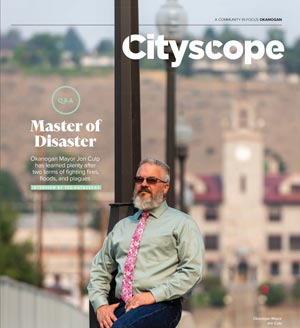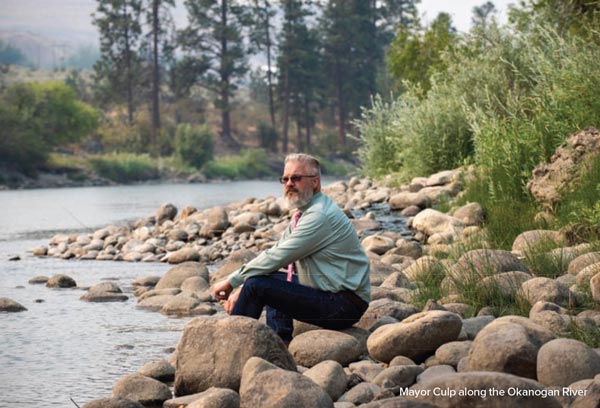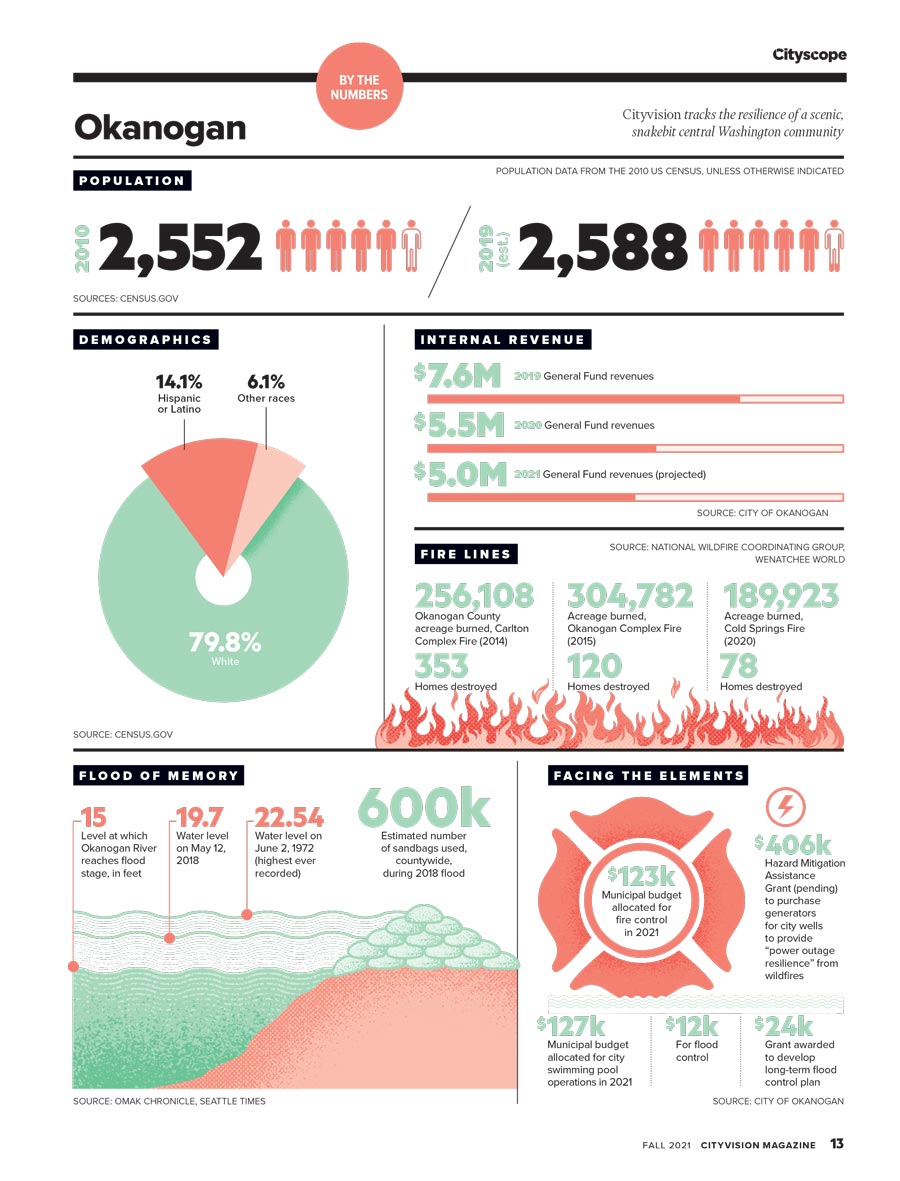Interview by Ted Katauskas

Your family has been in Okanogan for four generations; your grandfather served on the Okanogan Conservation District’s board of supervisors, as well as on city council. That’s actually what got me involved with local government:
that the average person can step up and give back to their community in that way. I started working for the Conservation District and an opening came up on city council, so I filled out an application and got appointed.
That was back in 2000.
In 2002, you went to work for the Washington State Conservation Commission, which oversees all 45 conservation districts in the state. What’s your role there? I’m the water resources program manager. At the moment, we’re
in the middle of a drought response, because the governor just declared a drought emergency here. I coordinate with the Department of Ecology to mitigate hardships brought about by the drought.
How is your city impacted by the drought?
One of our five wells is directly tied to the stream flow quantities in the Okanogan River; when the river gets to a certain level, we get a notice from the Department of Ecology to stop
using that particular well. So far this year we haven’t gotten to that point, but the river is going down pretty quickly...Wildfire is going to be the biggest threat to health and human safety this year. It’s just hot and dry, and it doesn’t
take much for something to get started.

Are you thinking of the wildfires of 2014 and 2015?
We didn’t have any fire come into the city limits on those, but it got a little bit Wild West: the phone goes down, and the internet goes down—it was a little bit scary.
We did have a pretty catastrophic fire last year that burned on the reservation just across the river right along the edge of town. It was a Labor Day weekend, and the wind was just howling, and it was moving super-fast. So that also was pretty scary.
How did you respond as Okanogan’s mayor?
I remember the first wildfire. The first thing I did was I ran down to city hall and got out the All Hazards Mitigation and Community Wildfire Protection Plan, and I opened it up to
the City of Okanogan section to try and figure out what’s my role in this. And all it said was, “Buy $1 million fire truck.” That’s when it occurred to me that the plan needed to be rewritten.
The levee that protects downtown started leaking, and the whole community turned out: everyone was filling sandbags, hauling sandbags, placing sandbags for days on end. Luckily, we kept most of the river inside its banks, and we didn't lose any structures
in town.
What about Okanogan’s water hazard: its namesake river?
The headwaters are up in Cana- da, and three springs ago, after a great snow year up there, super-warm temperatures came in really fast, so the river rose up into flood
stage. The le- vee that protects the downtown started leaking, and the whole community turned out: every- one was filling sandbags, haul- ing sandbags, placing sandbags for days on end. Luckily, we kept most of the river inside its banks, and we didn’t
lose any structures in town.
As a local leader, you must feel a bit like Moses and the 10 plagues.
The previous mayor was mayor for 13 years, and he didn’t have to deal with any natural disasters. In less than half the time, if you include the pandemic,
I already have had essentially four.
How was the pandemic different than those other disasters?
What made the pandemic different was the [mask] man- dates. In rural Washington, as I assume it is in a lot of the country, people don’t like to be told what to do.
During the Black Lives Matter protests last summer, you marched with supporters at a parade in nearby Omak. Why did you participate?
I’m a firm believer in equity and people’s right to peacefully protest. I feel like
it’s an obligation of being a community leader that you stand by your principles and you need to represent everybody, whether you’re politically aligned with them or not. There are some people who don’t have a voice, and if you’re
a community leader, you have to give voice to those people.
How did your friends and neighbors react to you marching?
During the march, I had people who said, “What are you doing? You’re not supposed to be over there. You’re supposed to be over here [with the assault rifles]
protecting businesses!”
And how did you respond to that?
I just kept marching.
And now you’re running for a third term. What’s your motivation?
Small-town mayors are about making sure things are getting done and making sure the water flows and the toilets flush and the pool is full in the summertime.
We get to spend a lot more time doing things that impact people’s day-to- day lives. And that’s what keeps you going.
